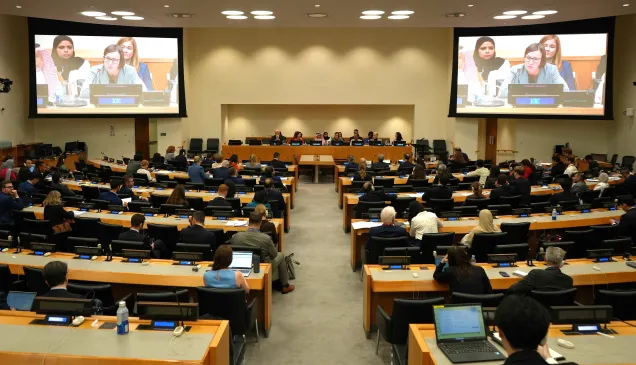DigitHarium Month #7: Biometrics and Humanitarian Protection
Biometrics have become a much talked-about subject in the context of humanitarian operations. Biometric data promise to help addressing ongoing humanitarian issues such as lack of identification and assistance fraud. However, their very nature means that a permanent record for a person is created, and that more information might be derived about a person than originally intended. And in times of conflict, this poses protection risks.
For the seventh DigitHarium month, we looked at how we can make biometric data work for humanitarian organizations: what they are, how they function, what advantages they present, and what mitigation measures we need to consider to make them safer to use in fragile settings.
For the seventh Digital Dilemmas Dialogue, our Tokyo delegation invited Cristiano Blanez, Manager for the International Organization Team at NEC, to discuss the work currently being done in the development of biometric technologies. During the discussion, we went over the nature of biometric data, what distinguishes them from other types of sensitive data, what advantages they can bring to humanitarian operations, and what risks we need to be mindful of before determining whether we want to use them.
 |
|
Digital Dilemmas Dialogue #7: Biometrics, personal data and humanitarian protection 22.09.21 | Online recording available |
For the seventh Digital Dilemmas Debate, we invited experts from the humanitarian, technical and operational fields to discuss what the introduction of biometrics might mean for humanitarian programmes. We focused in particular on the specific mitigation measures (both technical and policy-related) that humanitarians should implement to use biometrics as responsibly and as safely as possible.
 |
|
Digital Dilemmas Debate #7: Biometrics - 'Overpurposed' by design? 30.09.21 | Online recording available |
Finally, to complement these different reflections, we invited two ICRC experts to analyze and explain how modern techniques in information security can – or cannot – be applied to the unique nature of biometrics data in the humanitarian context.
 |
|
DigitHarium blog post: Biometrics in humanitarian action: a delicate balance, by Vincent Graf Narbel and Justinas Sukaitis 02.09.21 | Available online |
Additional resources
Facilitating innovation, ensuring protection: the ICRC Biometrics Policy, by Ben Hayes and Massimo Marelli (12 min read)
Humanitarian experimentation, by Kristin Bergtora Sandvik, Katja Lindskov Jacobsen and Sean Martin McDonald (5 min read)
[VIDEO EXPLAINER] Biometrics (01:32)
[DISCUSSION] Digital Identity and Biometrics - Follow the Sun event (1:16:50)
The ICRC biometrics policy (2019)
Questions? Comments? Ideas?
Feel free to write to us at: digitharium@icrc.org
The DigitHarium is part of the Humanitarian Data and Trust Initiative.



